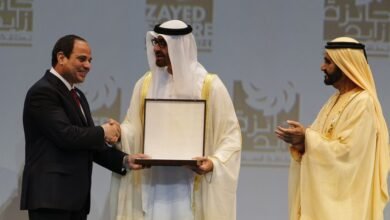EFCC Cracks Down on Currency Racketeering and Illegal Mining Activities

In the sprawling web of financial and economic crimes that stretch across Nigeria, the Economic and Financial Crimes Commission (EFCC) remains at the forefront of untangling complex cases that threaten the integrity of the nation’s economy. Recently, their unyielding efforts led to the arrest of a banker, Soberechukwu Ewa, alongside a Point of Sales (POS) cashier, Azubuike M. Obasi, in a case that sheds light on the dark underbelly of currency racketeering. Additionally, in a separate operation, the Ilorin zonal command of the EFCC apprehended two Chinese nationals and a Nigerian for their alleged involvement in illegal mining activities, marking a significant week for the commission in its relentless pursuit of economic offenders.
The Tangled Web of Currency Racketeering
In a meticulously executed operation, the EFCC zeroed in on Soberechukwu Ewa, a banker whose actions betrayed the trust vested in financial institutions by the Nigerian public. Ewa was allegedly caught in the act of selling new naira notes, a practice that not only contravenes financial regulations but also undermines the economy’s stability. The buyer in this illicit transaction, Azubuike M. Obasi, a POS cashier, was found with N554,600 in new naira notes, intended for circulation to unsuspecting customers at a premium. This case highlights a troubling trend of currency racketeering that the EFCC is determined to eradicate.
Unearthing the Illegal Mining Syndicate
Parallel to the crackdown on currency racketeering, the EFCC’s Ilorin zonal command unraveled a different kind of economic crime involving the illegal extraction and exportation of valuable minerals. Two Chinese nationals, Yang Chao and Xiao Jiang, along with a Nigerian, Chidi Joseph Osuji, were arrested for their suspected involvement in illegal mining activities in Ogun state. The trio allegedly specialized in the extraction of minerals such as marble stone, white powder, lithium, and lepidolite. These activities not only deprive the Nigerian economy of valuable resources but also pose significant environmental risks. The suspects reportedly smuggled these minerals out of the country through illegitimate channels, aiming for private gains at the expense of the nation’s economic health.
EFCC’s Unwavering Commitment to Economic Integrity
The recent arrests are a testament to the EFCC’s dedication to safeguarding Nigeria’s economic landscape from the clutches of corruption and illicit activities. The commission’s proactive measures in combating currency racketeering and illegal mining underscore its role as a pivotal force in maintaining economic integrity and stability. The suspects involved in both cases will soon be charged to court, as the EFCC continues its vigilant oversight of financial and economic practices within the country. With each operation, the commission sends a clear message that economic crimes, irrespective of their nature, will not be tolerated.
In conclusion, the EFCC’s recent operations against currency racketeering and illegal mining activities illustrate the multifaceted challenges facing Nigeria’s economy. These cases, while distinct in their specifics, share a common thread of exploiting the nation’s resources for illicit gains. The commission’s unwavering resolve in tackling these issues head-on not only reinforces its commitment to upholding economic integrity but also ensures that Nigeria’s path towards economic stability is fortified against the machinations of unscrupulous individuals and entities.





